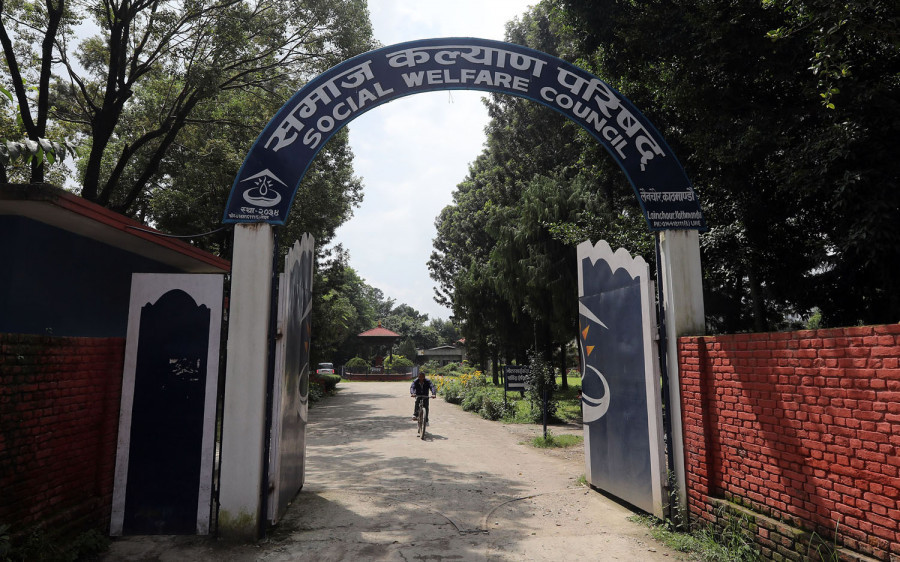National
Social Welfare Council to detach itself from evaluating projects run by non-governmental organisations
The move is aimed at avoiding potential conflict of interest, officials at the council say.
Prithvi Man Shrestha
The Social Welfare Council has decided to discontinue its involvement in the evaluation of projects implemented by the non-governmental organisations.
After concerns were raised over potential influence of the council members from the non-governmental organisations during the monitoring and evaluation, the council has decided to stay off the evaluation process.
As per the existing monitoring and evaluation guidelines, the council and local governments are authorised to conduct evaluation of projects run by domestic non-governmental organisations. When it comes to international non-governmental organisations, the evaluation team is represented by external evaluators while the council evaluates the projects.
“We have amended the monitoring and evaluation guidelines which have made the provision of evaluation of the projects implemented by the domestic and foreign NGOs only from third parties,” said Pushkar Khati, member secretary of the council. “The move is aimed at avoiding conflict of interest as the council itself should not be approving the project and evaluating the works.”
The amendment to the guidelines has not yet been made public.
Currently, while conducting the evaluation of projects implemented by international NGOs, a four member team is formed led by a programme specialist, and represented by each member from the council, the government and a financial specialist.
Concerned foreign NGOs are entitled to make arrangements for the expenses of remuneration, and travel allowance and stationaries. In the case of international NGOs, they have to make arrangements for such expenses when they sign project agreement with the council. In the case of the domestic NGOs, they make such arrangements before the monitoring and evaluation team is finalised as per the current guidelines.
By hiring the external evaluators, the council aims to double the number of projects whose evaluation is conducted in a year.
“For the current fiscal year, the council has targeted to monitor 300 projects. We aim to increase the evaluation of 600 in a year by hiring external evaluators,” Khati told the Post.
Due to limited staff, Khati said, the council cannot participate in every evaluation.
“If we hire only external evaluators, we can increase the projects to be evaluated in a year,” he said.
Before amending the monitoring and evaluation guidelines, the council had held discussions with stakeholders and notified about the potential changes.
“We were told that the council was planning to separate the task of monitoring and evaluation,” Jitram Lama, president of NGO Federation Nepal, a grouping of local NGOs,told the Post. “We are okay with the proposal as it is essential for fairness of evaluation.”
Khati said that the council would continue to work towards enforcing the provision requiring the NGOs to make timely reporting to the council, conducting mid-term evaluation of their projects and carrying out social audit.
Meanwhile, the council also decided to remove requirement for NGOs to invest 60 percent of their programme budget in hardware (infrastructure) for the NGOs that work in the field of preventing social ills such as child marriage, Chhaupathi and caste-based discriminations. “The decision was taken thinking that the task of social transformation should not be constrained in the name of allocating more funds in infrastructure instead of awareness programmes,” said Khati.
Lama said that they had also been advocating for such provision, as maintaining 60 percent portions for hardware is difficult for the NGOs focussed on advocacy. He said that appointment of officer-bearers, many of whom had previously worked in different NGOs, has been crucial for some of the planned changes that would facilitate the works of NGOs.
“Until a year ago, bureaucracy was much influential in shaping policy on NGOs which was often control oriented,” Lama said.




 17.9°C Kathmandu
17.9°C Kathmandu















